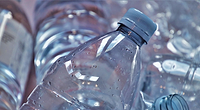Bisphenols Common in Pizza Boxes and Migrate into Pizzas, German Analysis Finds

Image credit: pressahotkey via Freepik
An analysis conducted by German consumer protection group ÖKO-TEST demonstrated that bisphenols in pizza takeout boxes often migrate into pizzas.
ÖKO-TEST bought ten pizza boxes—five from well-known pizza delivery services or restaurant chains, and five from online or wholesale retailers—and tested them for Bisphenol A (BPA) and Bisphenol S (BPS). Almost all of the boxes were contaminated with BPA and BPS.
Only one pizza box, from Pizza Hut, tested negative for both BPA and BPS. The box from Call a Pizza tested negative for BPS. The rest of the boxes tested positive for both BPA and BPS.
Additionally, in a simulation using the same ten boxes, the laboratory was able to detect a transfer of BPA from the boxes into pizza in four cases. For all eight boxes that tested positive for BPS, migration of the chemical from the boxes into the pizza were detected. The largest amount of BPA detected in a pizza in the lab simulation exceeded the European Food Safety Authority’s (EFSA’s) tolerable daily intake (TDI) for the chemical of 0.2 nanograms per kilogram of body weight per day by 45,000 percent (assuming a 60-kilogram person was consuming 390 grams of pizza).
Although there is no EFSA TDI for BPS, due to there being a less extensive body of evidence for the chemical in comparison to BPA, the German Federal Institute for Risk Assessment (BfR) recommends applying the same TDI for BPA to BPS. Like BPA, the EU considers BPS to be a “substance of very high concern” under the Registration, Evaluation, and Authorization of Chemicals Regulation (REACH Regulation), as it is known to be toxic to the reproductive system. Additionally, a vast body of literature has demonstrated BPA’s ability to contribute to cancer, obesity, and behavioral problems in people, as well as its toxicity to the endocrine and reproductive systems.
According to ÖKO-TEST, bisphenols are not intentionally added to pizza boxes like they are other types of packaging, but unintentionally enter the paper used to construct pizza boxes via contamination in the paper waste stream. When pizza boxes are manufactured with recycled paper instead of fresh fibers, bisphenols may be found in the boxes.
Beginning January 20, 2025, BPA and BPS may no longer be used in food contact materials, thanks to an EU regulation passed in December 2024. However, this regulation does not specifically apply to recycled paper products, instead focusing on products to which bisphenols are intentionally added during manufacturing, like coatings on metal cans, reusable plastic drink bottles, water distribution coolers, and other kitchenware.
Moreover, although BPA has been banned for use in thermal paper in the EU since 2020, the use of BPS is still permitted, and is likely the reason why BPS levels found in the boxes in ÖKO-TEST’s analysis were significantly higher than BPA. The group notes that BPA levels in the paper waste stream has been decreasing over time, since the ban.
ÖKO-TEST calls for stronger bisphenol regulations for paper products, and recommends that, until gaps in regulatory oversight of bisphenols in recycled paper food contact materials, pizza shops offer reusable plastic pizza takeout boxes for consumers to purchase.
A PDF report of OKO-TEST’s analysis and results can be downloaded for free from the group’s online shop.
Looking for a reprint of this article?
From high-res PDFs to custom plaques, order your copy today!






